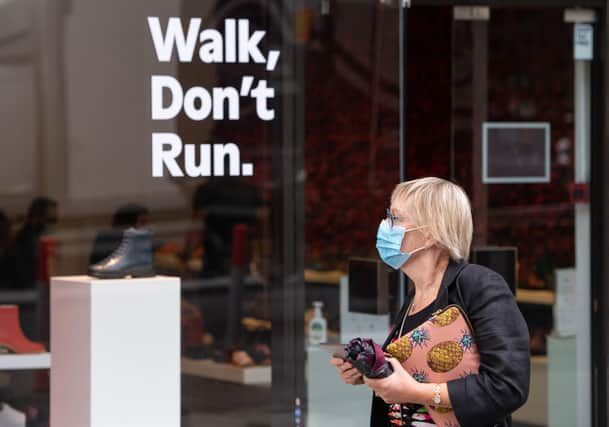Health Committee says ‘show us the evidence’ for new NI Covid restrictions


Northern Ireland’s chief scientific adviser Professor Ian Young and chief medical officer Dr Michael McBride consider the latest evidence regularly to provide advice to the Executive to make decisions over further or fewer restrictions.
There has been a surge of positive cases of Covid-19 in the region in recent weeks.
Advertisement
Hide AdAdvertisement
Hide AdChairman Colm Gildernew said the committee was seeking evidence from the department around the regulations.
Appearing at the committee, Prof Young said a large amount of the scientific evidence was publicly available through the Scientific Advisory Group for Emergencies (Sage).
“In addition, myself and the chief medical officer do provide evidence directly to the Executive, obviously the matter of whether that should be published or not, I think is one for the Executive,” he said, adding that he was not aware of whether the Executive had been formally asked to share that evidence.
Alliance MLA Paula Bradshaw questioned Prof Young about exactly how and where the virus was spreading.
Advertisement
Hide AdAdvertisement
Hide AdHe responded, saying that initially the evidence suggested that the majority of cases were a consequence of household transmission, and so restrictions focused on household mixing.
“At present, the largest group of cases that are being identified are described as community transmission. Community transmission is a fairly broad basket which includes a wide range of settings … that will include the hospitality sector and sports venues,” he said.
“Often what the contact tracing service find is that when there’s a cluster, that individuals have been mixing not just in an individual setting but in multiple settings, for example a cluster associated with a sporting club, on investigation it may turn out that individuals have mixed in the sporting context but subsequently also in a social context, either in the hospitality sector or in a household setting.
“The decisions are difficult, they are not straight forward and the evidence is not straight forward.”
Advertisement
Hide AdAdvertisement
Hide AdHe said in Londonderry and Strabane, more than half of the cases in identifiable clusters were associated with the hospitality sector.
Mr Gildernew pressed Prof Young for a breakdown of those figures, to allow the committee to “apply our scrutiny and advice role to the department as we are mandated to do”.
SDLP MLA Colin McGrath said his inbox was being “filled up with people saying there is no evidence” for decisions taken.
“We need to get that shortened document that is provided to the Executive and to ministers to tell them why decisions are taken because we must scrutinise it,” he said.
Advertisement
Hide AdAdvertisement
Hide Ad“Those cynics and naysayers are out there, and if we just simply have to throw our hands up and say we’re told there is information … I think it would be better if we could get it.”
Meanwhile, Mr Gildernew said that issues had arisen around support bubbles in terms of “no capacity” to set up a “secondary bubble” if the initial one was no longer able to function.
Nigel McMahon, chief environmental health officer at the Department of Health, said it was a “good point” but that there were concerns that allowing exemptions for bubbles between two households could “be open to abuse”.
“We do accept it is something we need to look at, that there will potentially be circumstances where a household may be in a position where it needs to consider bubbling with another household,” he said.
“I would also point out there is also a separate exemption as well which is to provide care and assistance to a vulnerable person.”